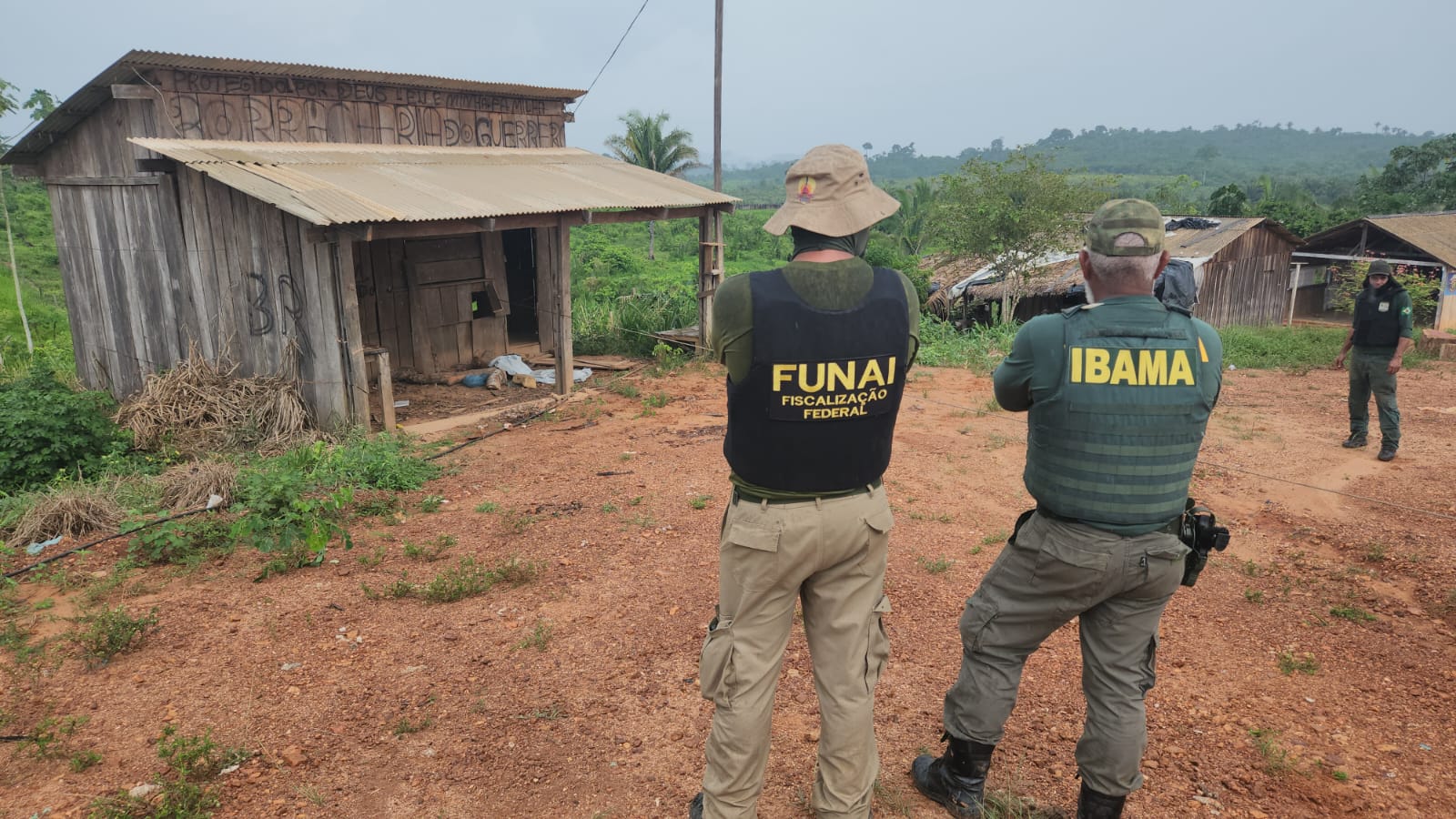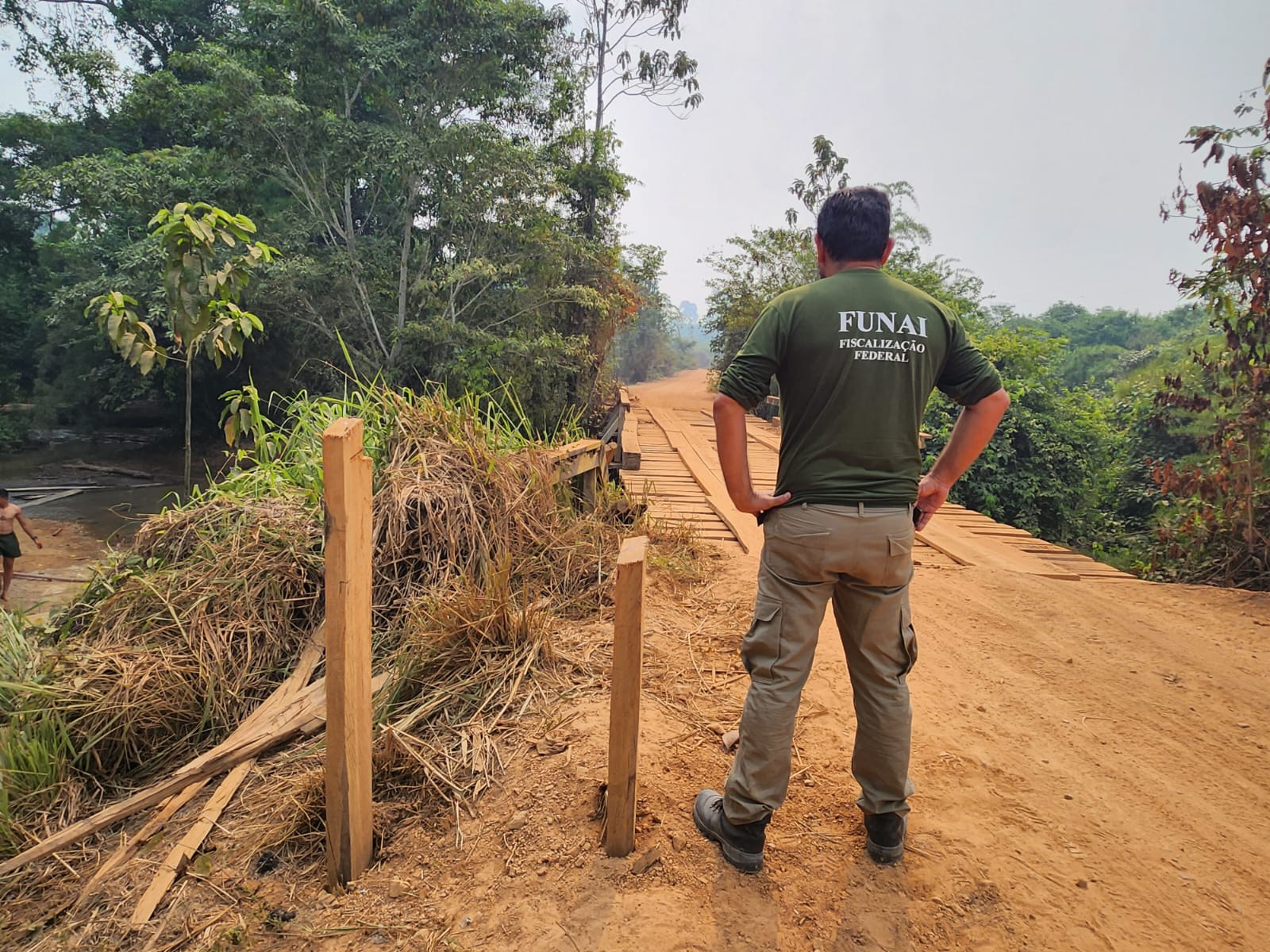Disintrusion: a milestone in indigenous territorial defense
The Amazon Rainforest spans nine countries in South America: Brazil, Bolivia, Peru, Colombia, Venezuela, Suriname, Guyana, French Guiana, and Ecuador. Brazil harbors 60% of the rainforest. In 2023, deforestation in the Brazilian rainforest dropped 22% when compared to 2022, as a result of supervision and control measures. One of them goes by a name that is still relatively unknown: the disintrusion of Indigenous Lands. Preservation of forests as part of the fight against climate change is one of the priorities of the Brazilian presidency of the G20.

In the current global scenario, the protection of ecosystems and natural resources is more than an environmental concern—it is an issue that must be intertwined with economic sustainability and the preservation of the cultures and identities of original peoples and other ethnicities.
This interdependence reveals itself as one of the fundamental pillars of a sustainable future, but is full of challenges that have to be faced: the pressure for natural resources and economic interests often collides with the territorial rights of ethnic groups and the protection of ancestral cultures.
Brazil’s Federal Constitution determines that lands that are traditionally occupied by indigenous people are for their permanent possession, and that they have the exclusive use of the riches from the soil, rivers and lakes existing there.
The Amazon Rainforest spans nine countries in South America: Brazil, Bolivia, Peru, Colombia, Venezuela, Suriname, Guyana, French Guiana, and Ecuador. Brazil harbors 60% of the rainforest. In 2023, deforestation in the Brazilian rainforest dropped 22% when compared to 2022, as a result of federal government supervision and control.
The disintrusion of indigenous lands is a process that strives to remove unauthorized invaders from these areas, returning control over these territories to original peoples, and carrying out measures to ensure that new invasions do not occur—as determined by Brazilian legislation.
Disintrusion returns lands to their legitimate owners


“We will continue fighting to remove miners from Yanomami lands and other indigenous areas that are still harboring invaders. We will have an active, permanent and continuous front with the commitment of the ministries that work together, in a transversal way, as per President Lula's guidance, to protect indigenous peoples,” stated Brazil’s Minister of Indigenous Peoples Sonia Guajajara on a trip this month to the Yanomami Indigenous Lands alongside the Minister of Environment and Climate Change Marina Silva; the Minister of Human Rights and Citizenship Silvio Almeida; and the president of Funai Joenia Wapichania.
An emblematic case for the world was the disintrusion of the Apyterewa and Trincheira Bacajá Indigenous Lands, in the municipality of São Félix do Xingú, which began at the beginning of October and ended at the end of December 2023. The two areas harbor around 2,500 indigenous people from 51 communities, and its lands were approved as indigenous territory in 1996 and 2007, respectively, by the Brazilian Federal Supreme Court (Supremo Tribunal Federal/STF). Brazil’s Federal Constitution determines that lands that are traditionally occupied by indigenous people are for their permanent possession, and that they have the exclusive use of the riches from the soil, rivers and lakes existing there.
The Apyterewa Indigenous Lands belonging to the (recently contacted) Parakanã ethnic group, was the most deforested in the Legal Amazon over the last ten years, according to data from the Terra Brasilis platform of the National Institute for Space Research (Instituto Nacional de Pesquisa Espacial/INPE). As well as deforestation, other crimes were committed—such as land grabbing, livestock farming and illegal mining.
To comply with the court order that determined the disintrusion, the Brazilian government prepared a large operation with integrated action by 19 public bodies and institutions, including security forces and national inspection bodies. As a result of the deintrusion operation, deforestation in Apyterewa Lands dropped 84.7% in the period between October 1 and December 22, 2023, when compared to the same cycle in 2022, according to data from INPE's Deter system. Ibama inspections resulted in the application of more than BRL14 million in fines over the last four years.
Although it encountered resistance from the invaders, the government's strategy of providing a deadline for the voluntary departure of non-indigenous occupants and, thus, avoiding the use of force for compulsory withdrawal was successful. On another front, the government also registered non-indigenous families who occupied the area for referral to social and settlement programs, in cases covered by law.
“We are going to remove all invaders, and miners, from Yanomami territory and other indigenous lands where invaders are still extracting illegal wood and ore,” reiterated the Minister of Indigenous Peoples.